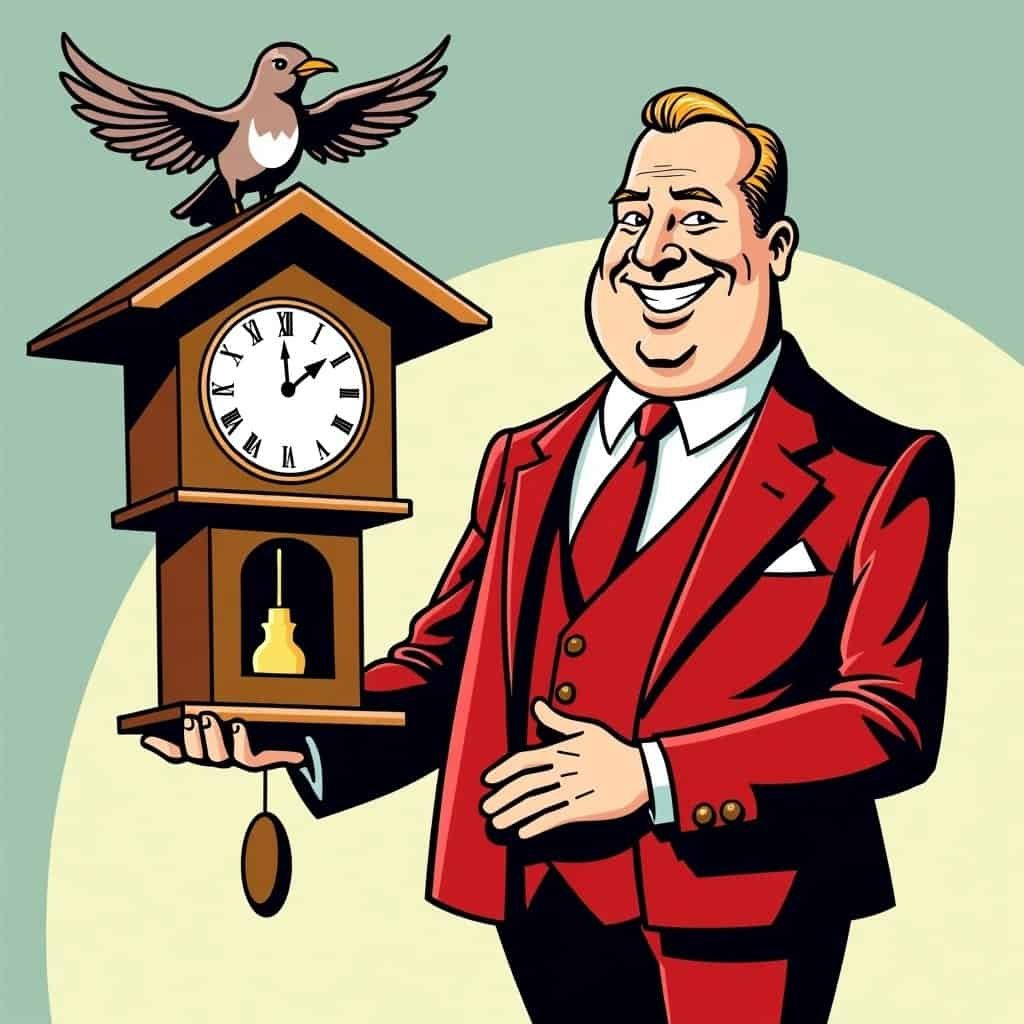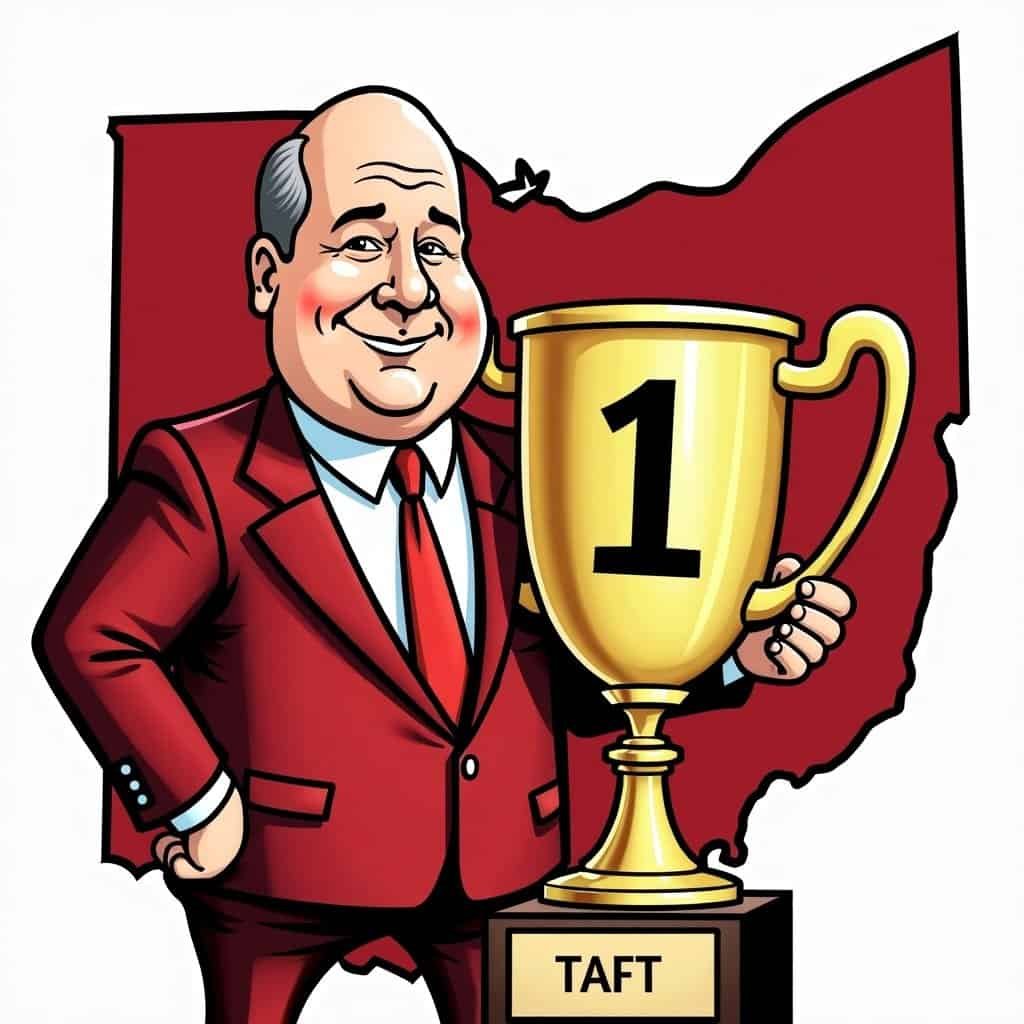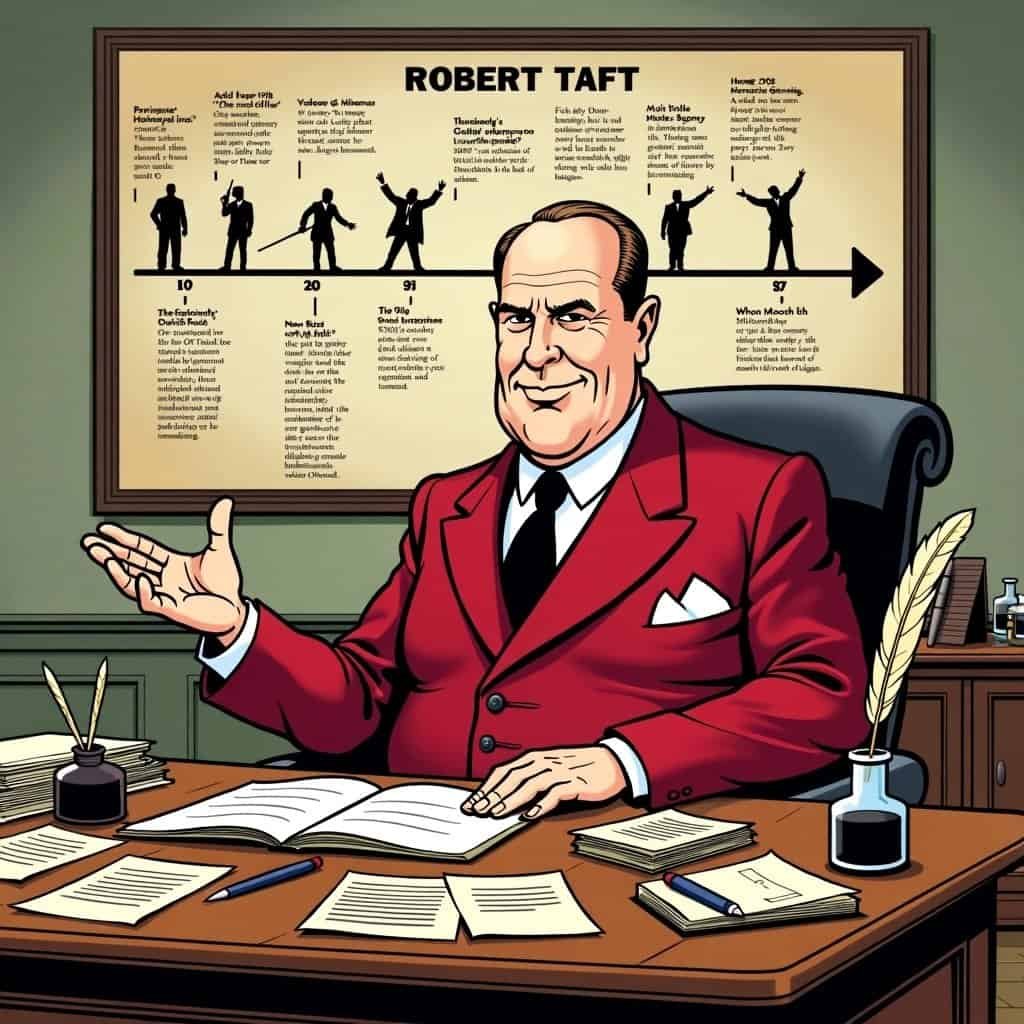Once upon a time, in the grand halls of American politics, there was a valiant senator named Robert Taft. Oh, Robert, the conservative beacon of the mid-20th century! He was known for his unwavering commitment to limited government, personal responsibility, and, of course, the critiquing of any attempts to expand Social Security—bless his frugally inclined heart!
Picture this: a bustling conservative think tank meeting. For those not in the know, it’s like a pool full of constitutional scholars doing a synchronized swim routine—quite a sight!
“Good heavens, what new fiscal nonsense is this?” Taft would exclaim, eyebrows raised, pen ready to strike down any proposals that hinted America should become as financially dependent as a teenager with Dad’s credit card!
In Taft’s eyes, expanding Social Security was like putting icing on an already hefty cake. He jokingly compared social spending to political cake baking – always risking becoming too rich for one’s own good!
Taft’s Conservative Philosophy
Taft, the conservative champion, believed that people should feel the gentle nudge of the free market pushing them toward success. “Give a man a fish,” Taft might quip, “and you’ve momentarily confused him. But teach him to fish, and he’ll own the pond someday!”
This isn’t just clever wordplay—there’s a conservative principle here: it’s the belief in self-reliance and the joy of personal freedom, untouched by excessive government oversight or bureaucratic mysteries.
Taft’s Key Principles
- ✅ Limited government intervention
- ✅ Personal responsibility
- ✅ Free market economics
- ✅ Voluntary charity over government handouts
What many overlook is that Taft wasn’t against helping others. Instead, he argued for the strength of voluntary charity and community—a stark contrast to government handouts. He believed communities thrive when individuals step up to help, rather than waiting for Washington to write a check!
A Modern Perspective on Taft’s Ideas
Oh, the jokes he might crack about today’s political scene. “Social Security expansion,” he’d muse, “is like giving your teen an unlimited soda pass at the local diner. Sure, great at first, but eventually, there’s gonna be a sugar rush, followed by a crash!”
Taft’s spirit reminds us today, with a chuckle, that keeping promises small does more to keep promises. After all, our dear Robert knew a thing or two about fighting what he saw as creeping socialism—where individuals become mere subjects to the whims of governmental grandeur.
Taft’s Hypothetical Take on Modern Social Programs
| Program | Taft’s Likely Reaction |
|---|---|
| Universal Basic Income | “Like giving everyone a participation trophy for existing!” |
| Medicare for All | “A prescription for bureaucratic indigestion!” |
| Free College Tuition | “Higher education or higher taxes? Pick your poison!” |
And, so, rolling his eyes at yet another social program, Taft likely chuckled, “If we keep going, we’ll have to start paying folks not to take part in these plans— much like selling umbrellas in a desert!”
There’s something to be said about the timelessness of Robert Taft’s critiques—satire wrapped up nicely with a fiscal bow. Today, those who value conservative principles nod in agreement, reminded that sometimes, all one needs is the freedom to dance to the beat of their own (fiscal) drum.
So as you sip your morning coffee, dear reader, and ponder the immortal musings of Taft, consider this: some old ideas stand the test of time because, at their core, they echo our basic desire for freedom. And who among us can argue with that?






